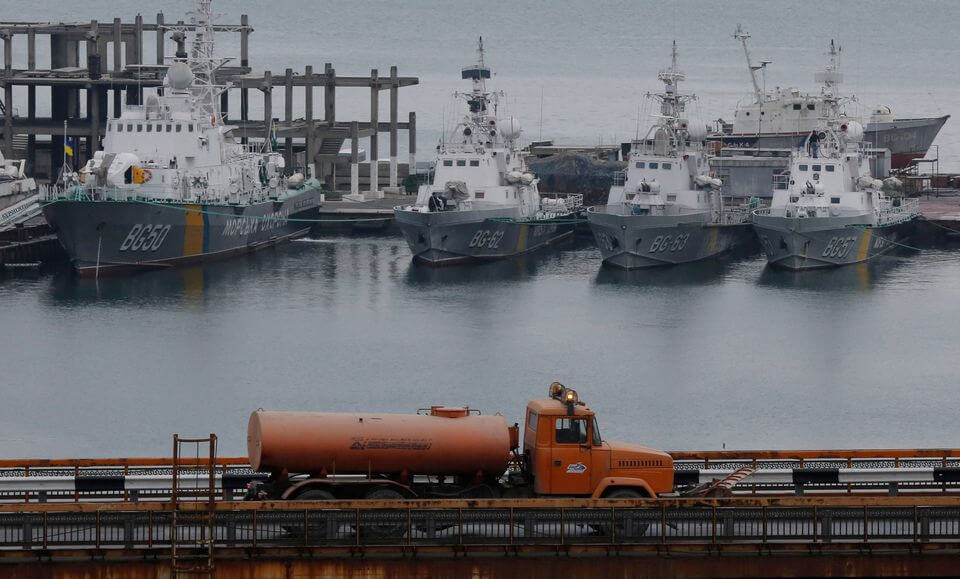Ukraine and Russia will sign a deal today to reopen Ukrainian ports that have been blocked since Moscow invaded Kyiv on February 24, Turkey announced. Turkish President Recep Tayyip Erdoğan’s office said on Thursday that Ukraine, Russia, Turkey, and the United Nations (UN) will officially agree to resume Ukrainian grain exports through the Black Sea.
Ankara said that a general agreement had been reached between all four sides last week to facilitate the safe transfer of Ukrainian grain exports. The deal will be signed by representatives from Ukraine and Russia, and the ceremony will be attended by Erdoğan and UN Secretary-general António Guterres in Istanbul.
However, the Ukrainian Foreign Ministry said there was no guarantee that it would sign the deal if Russia did not meet certain conditions. “Following negotiations, a document can be signed, that will contain the obligations of the parties regarding the safe operation of the export routes in the Black Sea,” Kyiv noted.
"Russia’s de facto blockade of the Black Sea caused Ukraine’s exports to drop to one-sixth of the prewar level." "More than 20 million tons of Ukrainian grain has been trapped..., exacerbating famine in Africa." A deal to end the blockade may be near. https://t.co/KUJKAEmfjL
— Kenneth Roth (@KenRoth) July 22, 2022
Ukraine has said it will only sign a deal that “guarantees the security of the southern regions of Ukraine, the strong positions of the Ukrainian armed forces in the Black Sea, and the safe export of Ukrainian agricultural products to the world markets.”
Ukrainian President Volodymyr Zelensky hinted at the possibility of a deal and said Kyiv expects news from Istanbul “regarding the unblocking of our ports.”
Moreover, deputy UN spokesperson Farhan Haq said on Thursday that the UN is hopeful about the signing of a deal. “People are still dying. It is still raging. But the hopeful news from Istanbul shows the importance of dialogue,” Haq noted.
The US said it would welcome such an agreement and applauded the “hard work” of the UN and Turkey. Furthermore, Washington blamed Moscow for creating such a situation in the first place.
Turkey says a deal has been reached with #Russia to allow #Ukraine to resume grain exports through the Black Sea. The world shortage of Ukrainian grain since Russia's invasion has left millions at risk of hunger. Can the world now breathe a sigh of relief? Here's @BBCPaulAdams pic.twitter.com/J7UHzzOair
— Victoria Fritz (@VFritzNews) July 22, 2022
“Russia has weaponised food during this conflict. They have destroyed agricultural facilities. They prevented millions of tonnes of Ukrainian grain from getting to those who need it,” State Department spokesperson Ned price told reporters on Thursday. “It has been far too long that Russia has enacted this blockade. It is a reflection of Russia’s wanton disregard for lives and livelihoods not only in the region but well beyond that we even had to reach this point,” he added.
Russia, however, has repeatedly denied responsibility for causing the food crisis and has instead blamed Western sanctions for preventing Russia from exporting agricultural products. It has also claimed that Ukraine cannot transfer grain because its navy has mined its ports.
Last Thursday, Kyiv, Moscow, Ankara, and the UN agreed to establish a “coordination centre” in Istanbul to oversee transfers of Ukrainian exports. Representatives from all parties will be at the centre, which will establish joint controls at the port exit and arrival points and ensure navigational safety on the transfer routes.
The grain export agreement, critically important for global food security, will be signed in Istanbul tomorrow under the auspices of President Erdoğan and UN Secretary General Mr. Guterres together with Ukranian and Russian delegations.
— İbrahim Kalın (@ikalin1) July 21, 2022
Following its invasion of Ukraine in February, Russia imposed a naval blockade that left dozens of ships and over 20 million tonnes of Ukrainian grain exports stuck at ports. This led to rising demand for grains, skyrocketing food prices, and the depletion of wheat reserves in countries that are virtually entirely dependent on wheat from Ukraine and Russia, such as Egypt and Lebanon.
According to the Food and Agriculture Organization (FAO), the war’s impact on the global food market could lead an additional 11 million to 19 million people to chronic hunger by the end of the year. Therefore, the signing of the deal would bring much-needed relief to global agricultural markets and stakeholders.

